The balance of predictability and unpredictability that makes relationships fulfilling
Healthy relationships strike a balance between predictability and unpredictability. When we are in a long-term relationship, this balance is essential for keeping the relationship dynamic, stimulating, and secure.
The challenge of complete predictability
If a relationship becomes completely predictable, it can feel mechanical. Knowing with full accuracy how the other person will respond to every action, observation, or suggestion makes the relationship monotonous. It starts to resemble interacting with a programmed machine, where specific stimuli lead to predefined responses.
While predictability is an asset in the functionality of machines, it is not conducive to fostering meaningful human connections. Relationships that lack novelty and spontaneity often become boring and unstimulating, leaving people feeling emotionally disconnected.
The challenge of complete unpredictability
At the other extreme, if a relationship is entirely unpredictable, it becomes disorienting and unsettling. When we cannot anticipate how the other person will react, it can lead to insecurity and anxiety. Such relationships are akin to using a sophisticated device without a manual—pressing buttons without knowing their effects and failing to discern patterns over time. The unpredictability creates confusion and prevents the relationship from providing emotional stability.
Striking the right balance
The Bhagavad-Gita (12.15) advises us to interact with others in a way that neither disturbs them nor allows us to be disturbed by them. Achieving this balance often requires finding a mutually acceptable level of predictability and unpredictability in a relationship.
Some people value stability and seek comfort in predictability, while others crave excitement and find novelty in unpredictability. By having candid discussions, partners in a relationship can understand each other’s nature and expectations, arriving at a middle point that satisfies both.
The ideal balance
Predictability provides stability, ensuring that the relationship feels secure and reliable.
Unpredictability maintains novelty, keeping the relationship exciting and stimulating.
Too much predictability can make a relationship mechanical and boring, while too much unpredictability can make it disorienting and insecure. A balanced approach allows both stability and novelty to coexist, fulfilling the emotional needs of both individuals.
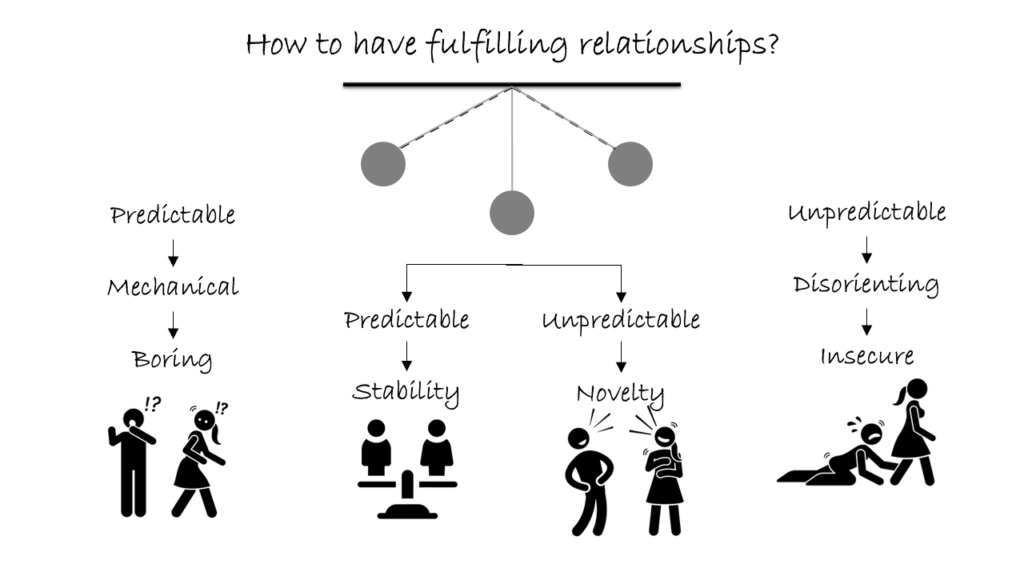
Summary:
- Healthy relationships require a balance between predictability, which provides stability, and unpredictability, which brings novelty.
- Excessive predictability can make relationships monotonous, while excessive unpredictability can lead to insecurity.
- Through candid discussions, partners can establish a balance that fulfills both their needs for stability and excitement.
Think it over:
- Is there a relationship where excessive predictability is making it boring for you? How can you introduce more novelty?
- Is there a relationship where excessive unpredictability is causing insecurity? How can you communicate your concerns to foster greater stability?
- Reflect on three of your most important relationships. What do you seek more in each—stability or novelty? Consider what the other person seeks, and take steps to make the relationship more mutually fulfilling.
***
12.15 He by whom no one is put into difficulty and who is not disturbed by anyone, who is equipoised in happiness and distress, fear and anxiety, is very dear to Me.

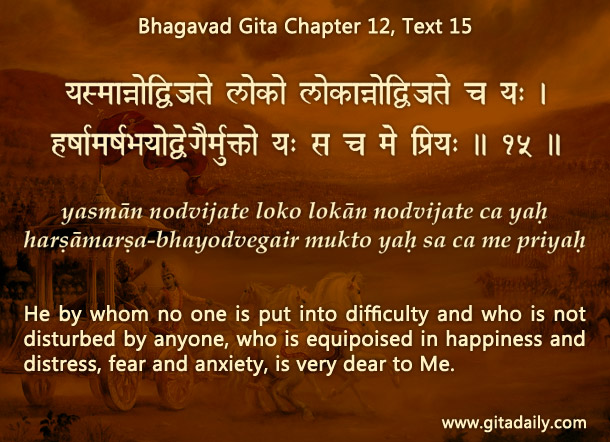

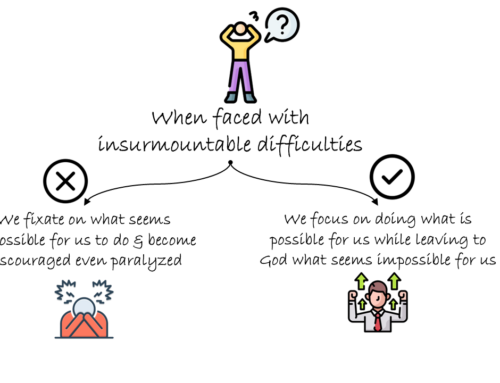

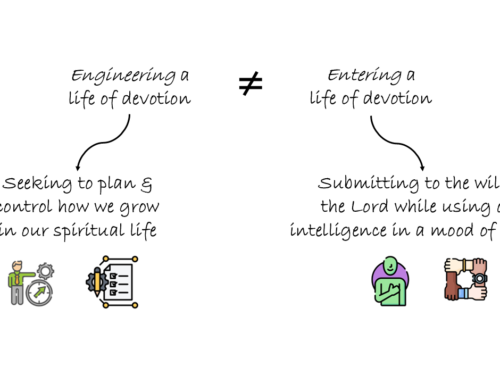

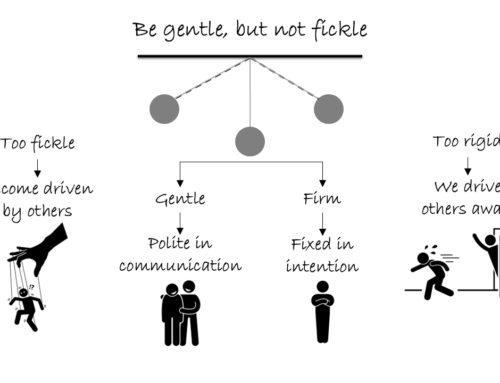

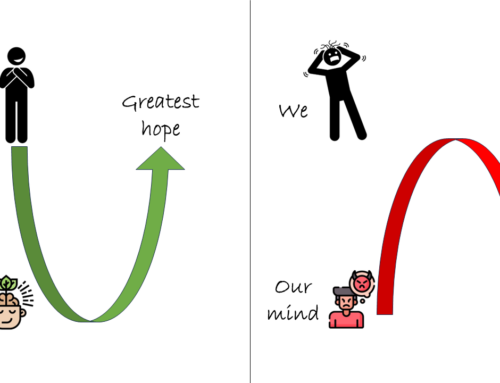
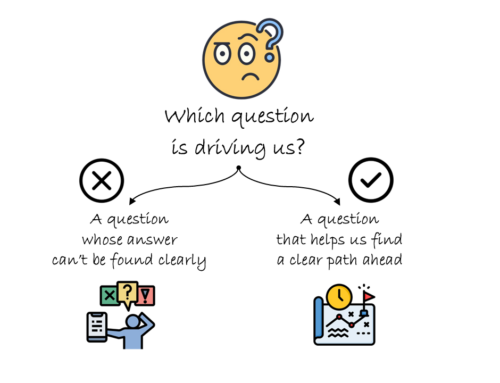
Leave A Comment